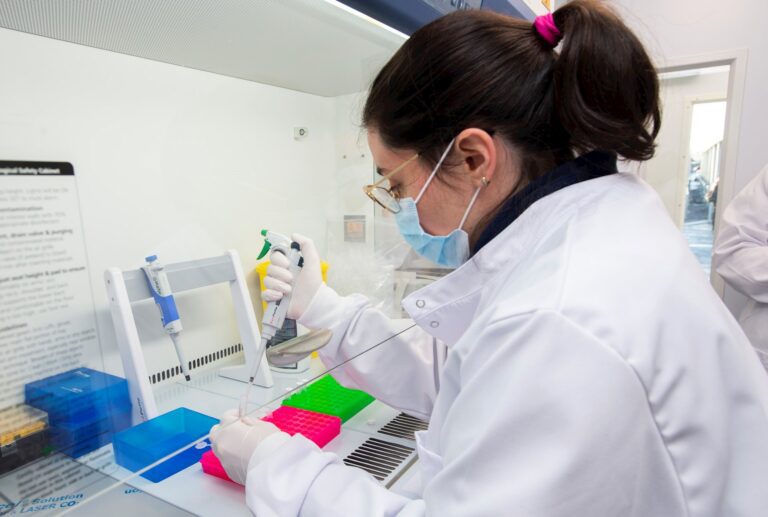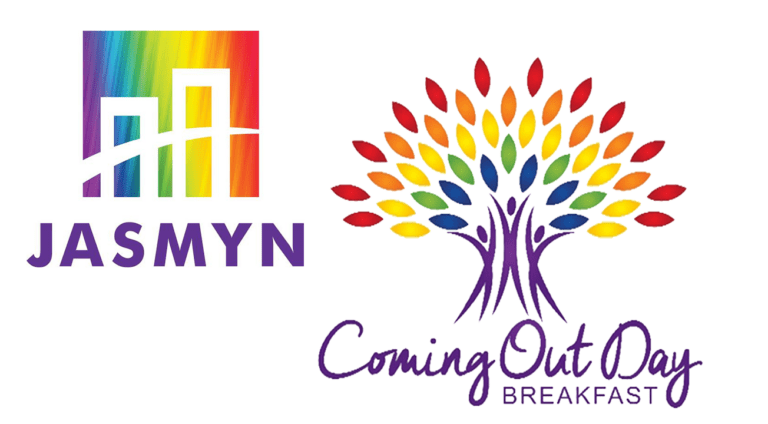Hookup Culture and STD Risk: How Apps Have Changed Sexual Health Norms
Over the last decade, the rise of dating and hookup apps has transformed the way people approach relationships, intimacy, and sex. No longer confined to traditional settings like bars or social gatherings, meeting potential partners has become as easy as swiping on a phone screen. With the simplicity and convenience these apps offer, the dynamics of sexual interactions have shifted. However, this change has come with its own set of challenges, particularly when it comes to sexual health.
In a world where hooking up is often facilitated by apps like Tinder, Bumble, and Grindr, the question arises: How has hookup culture affected the risk of sexually transmitted diseases (STDs)? Is the ease of meeting people leading to more casual encounters, and if so, does it also mean an increase in STD transmission?
At Hope Across The Globe, we understand the importance of addressing these issues in a way that informs, educates, and empowers individuals to make safer decisions in their sexual health journeys. This article dives into how hookup culture and STD risk are intertwined and explores the role that apps play in shaping our approach to sexual health.
Understanding Hookup Culture: A Digital Revolution in Relationships
What Is Hookup Culture?
Hookup culture refers to a societal shift in which casual, often short-term sexual encounters are normalized. The advent of dating apps has made it easier than ever to meet strangers, engage in casual hookups, and explore different sexual experiences. While these encounters are generally brief and without commitment, they are an integral part of the modern sexual landscape, particularly among young people.
Before the rise of dating apps, people typically met through friends, at parties, or in work or school settings, where the chances of engaging in sexual activity were often linked to long-term relationships or at least some form of connection. But apps have flipped this script. Now, the ease of meeting someone new has created a culture where casual encounters, often without deep emotional involvement, are more common than ever.
However, this shift has raised concerns about how casual sex impacts sexual health, specifically the risk of contracting sexually transmitted diseases (STDs).
Also Learn About: The Role of Meditation and Stress Management in STD Management
How Have Apps Changed Hookup Culture?
The introduction of apps like Tinder, Bumble, and Grindr has altered how individuals seek sexual partners. These platforms are designed to streamline the process of finding potential matches and offer the promise of quick, no-strings-attached encounters. The concept of “swiping” has made it easier to meet new people on a daily basis.
For many, this convenience has normalized casual sex and created a more permissive environment where encounters happen more frequently. However, the anonymity that these apps provide can sometimes foster risky behavior, where individuals are less likely to discuss sexual health or history before engaging in sexual activity. The result? Increased exposure to STDs and other sexual health risks.
The Rise of STD Risks in Hookup Culture
STD Awareness in the Age of Casual Sex
One of the most pressing concerns surrounding hookup culture is its relationship with sexually transmitted diseases. Unlike in more traditional dating situations, where discussions about sexual health might occur during the early stages of a relationship, casual hookups often skip these important conversations. This can result in individuals unknowingly exposing themselves to STDs.
Recent studies have shown that sexually transmitted infections (STIs) are on the rise, especially among younger people. In particular, chlamydia, gonorrhea, and syphilis have seen increased rates of transmission in recent years. These statistics are partly driven by the growing acceptance of casual sex, often made more accessible through dating apps. However, it’s not just the frequency of casual sex that is concerning; it’s also the lack of communication about protection and sexual health status between partners.
Are Apps Contributing to the Spread of STDs?
Dating apps are designed to facilitate quick matches, and in many cases, users engage in conversations that don’t touch on critical health topics. Many people may not disclose their sexual health history, and because of the short-term nature of hookups, they often don’t feel the need to discuss safe sex practices. This can be a dangerous oversight, especially when one or both individuals may unknowingly carry an STD.
The ability to meet new people quickly and discreetly via apps has made it easier for individuals to engage in sexual activities with multiple partners in a short period. However, this increase in sexual encounters can be directly linked to the spread of STDs. The absence of conversations about sexual health before engaging in sexual activity and the pressure for quick hookups can often lead to unsafe sexual practices, increasing the likelihood of STD transmission.
Rising STD Rates Among Younger Generations
A significant percentage of new STD cases are among younger people—those between the ages of 15 and 24. This demographic is particularly active on dating apps, and many are unaware of the risks involved in casual sex or are simply uninformed about how to properly protect themselves. The rise in online interactions and digital dating has led to a lack of comprehensive discussions about sexual health.
At Hope Across The Globe, we work to increase awareness about the importance of STD testing and safe sexual practices. By educating individuals, particularly younger generations, about the need to talk openly about sexual health, we aim to reduce the stigma surrounding these important conversations. STD testing should be part of the routine discussion before engaging in any sexual activity, whether it’s casual or committed.
Also Learn About: The Role of Meditation and Stress Management in STD Management
The Role of Clinics: Access to Testing and Prevention
Why STD Testing Is Crucial
STD testing is a fundamental aspect of maintaining sexual health, particularly in the context of hookup culture. When engaging in casual encounters, both parties need to be transparent about their sexual health status. Regular testing helps ensure that individuals remain aware of their health and can take appropriate action if they test positive for an infection.
For residents of Jacksonville, Hope Across The Globe works closely with STD Clinics in Jacksonville to ensure that individuals have access to affordable and confidential testing. Regular testing is an essential step in preventing the spread of STDs, and clinics in Jacksonville offer convenient options for those who may not feel comfortable visiting a doctor’s office or who simply need a quick, reliable test.
Making Testing Accessible and Normalizing Conversations About Sexual Health
At Hope Across The Globe, we believe that normalizing conversations about sexual health and making STD testing more accessible can significantly reduce the risks associated with hookup culture. Regular testing, open communication about sexual health, and practicing safe sex are critical steps in lowering STD transmission rates.
It’s important to remember that many STDs can be asymptomatic, meaning individuals may not show signs of infection. This is why testing is crucial, as many people may be unaware they are carrying an infection. In Jacksonville, the availability of convenient testing options makes it easier than ever for individuals to stay on top of their sexual health.
Protecting Yourself in the Era of Hookup Culture
While hookup culture has its benefits—providing individuals with the opportunity to explore their sexuality—it’s important to approach casual sex with caution. To reduce the risks associated with STD transmission, individuals should:
- Practice Safe Sex: Always use protection, such as condoms or dental dams, to reduce the risk of STD transmission.
- Get Tested Regularly: Regular STD testing is essential, even if you feel healthy. It’s the only way to know for sure if you’re carrying an infection.
- Communicate Openly: Be honest with your partners about your sexual health status and encourage them to do the same.
- Stay Informed: Keep yourself educated about the risks and signs of STDs, and understand the importance of early detection and treatment.
Conclusion: Navigating Hookup Culture Responsibly
Hookup culture has undoubtedly reshaped how we view and experience sex, offering an easier and quicker way to meet new partners. However, this shift comes with an increase in STD risk, especially when communication about sexual health is lacking. At Hope Across The Globe, we emphasize the importance of regular testing, practicing safe sex, and open communication to reduce the spread of STDs and ensure that individuals can continue to engage in their sexual lives responsibly and safely.
As we move forward, it’s essential to maintain a balance between exploring new relationships and taking proactive steps to protect sexual health. STD clinics in Jacksonville and across the nation play an important role in this, providing essential resources and testing options to keep everyone informed and healthy.
By taking responsibility for our sexual health and supporting each other through education and awareness, we can continue to enjoy our sexual experiences while minimizing the risks that come with them.
Learn About: Why Are STD Rates Rising Among Seniors?
FAQs: Hookup Culture and Sexual Health
1. What is hookup culture, and how has it changed over time?
Hookup culture refers to the societal shift where casual sexual encounters, often without emotional attachment, have become more common and accepted. Dating apps like Tinder, Bumble, and Grindr have made it easier to meet new people quickly, leading to an increase in casual sex. This cultural shift has redefined how people approach sex, relationships, and intimacy, making it more accessible but also raising concerns about sexual health risks.
2. How does hookup culture affect sexual health and STD risk?
The rise of hookup culture, especially facilitated by dating apps, has increased the number of casual sexual encounters. While these encounters offer convenience, they also pose risks related to sexually transmitted diseases (STDs). Since many hookups involve little or no discussion of sexual health, individuals may unknowingly expose themselves to infections. A lack of consistent protection and transparency about sexual health status can increase the likelihood of STD transmission.
3. How can I protect myself from STDs in hookup culture?
To protect yourself from STDs while participating in hookup culture, you should:
- Always use protection, such as condoms or dental dams, during sex.
- Get tested regularly for STDs, especially if you have multiple sexual partners or engage in casual sex.
- Communicate openly with your partner about sexual health and encourage them to do the same.
- Stay informed about common STDs and their symptoms, even though many infections can be asymptomatic.
4. What should I do if I think I’ve been exposed to an STD?
If you believe you’ve been exposed to an STD, it’s crucial to get tested as soon as possible. Many STDs are asymptomatic, so it’s important not to wait for symptoms to appear. Early detection can prevent complications and reduce the spread of infections. Hope Across The Globe collaborates with STD clinics in Jacksonville and other areas to offer convenient and confidential testing services.
5. Are STDs treatable, and how can they be managed?
Many STDs are treatable, especially if they’re caught early. Bacterial infections like chlamydia, gonorrhea, and syphilis can often be cured with antibiotics. Viral infections like HIV, herpes, and HPV can’t be cured, but they can be managed with proper medical care. Seeking treatment early can prevent long-term complications and help manage symptoms.
Related Tag: Free STD Testing Jacksonville





